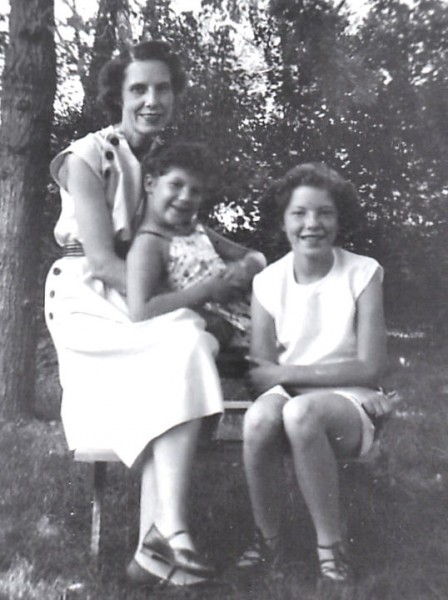How to Raise a Writer (and a reader)
July 20th, 2012[Note: Humphrey asked me to tell you that if you’re a fan, he’d be unsqueakably happy if you “Liked” his Facebook page at http://facebook.com/accordingtohumphrey.]
I once knew a woman who had an unusual daughter. Many parents panic if they notice anything about a child’s behavior that falls into uncharted territory, but this stay-at-home mom was unflappable.
While her daughter played outside endlessly by herself, way, way back in the yard – weaving in and out of the row of evergreens that lined the back wall – the mother glanced out the window from time to time. Her daughter talked to herself in a highly animated manner, acting out some kind of a story but the mother was merely bemused. When the girl came back in the house to get ready for dinner, the mother never, ever asked her what she was doing in the backyard. (I’m not sure whether she had to bite her tongue.) Once the girl told her about the little hotel that was back there -each evergreen was a door to a different room – and her mother accepted it without question.
Without question.
When the weather was bad, the girl played in her room. She lined her dolls up on the bed and pretended she was their teacher. It was a small house and the mother couldn’t help overhearing the girl’s monologue, but the mother didn’t questions, although from time to time, she could be heard telling other family members, “I know everything that happened in school today from listening to her play. I knew who got in trouble, who got a bad grade, who talked out of turn.” On Sundays, her daughter returned from church and re-enacted Sunday School.
The girl also spent long hours at her desk, drawing and writing. The mother surely noticed the accumulation of drawings of an endless cast of characters in the wastebasket and the wadded-up pieces of writing, but she didn’t let on. Her mother let her type on the old upright typewriter on the back porch as soon as she could form words.
Sometimes, the girl showed her parents a story or poem she had written. Her writing got good grades at school. The mother was pleased, but she when she saw her daughter scribbling away for hours, she didn’t ask what she was writing.
The unusual daughter had a father, too. He was tolerant, as well. The parents were already used to a daughter who loved to read. After all, their older girl was a devoted reader and when she was very young, they’d take her to three or four libraries at a time. The libraries only allowed children to check out a few books, and their first daughter needed more to get her through a week.
It didn’t bother the father when his younger daughter followed him around while he worked in the yard, her nose stuck in a book, spelling out words she didn’t know so he’d tell her what they were. It didn’t bother him when she’d call out at night (the family all read in bed every night) and spell out words. He’d just call back down the hall with the word and they all went on reading. No one ever told her she was reading too much, even when she tripped over furniture as she walked through the house reading.
At seven, the younger girl wrote a book (with pictures) and when she gave it to her parents, she told them she wanted to be a writer. They were surprised but proud. The father, who was an excellent amateur artist, took a shoe box and made a little diorama of her book, with cardboard cut-out figures of her hero, Teddy Bear, and his girlfriend, Tallulah.
When the family converted from an old coal furnace to gas, they painted the old coal bin in the basement, with its thick walls and the little window for loading the coal, and made it into an office for their writerly daughter. She had a desk, a blackboard, a chair, a little china cabinet. She carried a pitcher of water down there and wrote and wrote and wrote. It was her first office, the first of many and one of the best.
Perhaps if the little girl had been a loner, her parents might have worried, but she had loads of friends and in addition to playing alone, she loved to play jump rope, hopscotch, roller skate, ride her bicycle, play with her dog, play piano, play board games (and jacks and pick-up-sticks), watch TV and giggle.
Still …. still …. she spent a lot of time in some kind of imaginary world that they didn’t know. And they never tried to know.
Somehow, this girl’s parents knew that even a child has a right to privacy … the right to grow and change and create without intervention. A decade or two before people started saying, “I need my space,” they already knew it.
I can never thank these parents enough, for I was this girl, and these were my parents and I am grateful.









 Facebook
Facebook Twitter
Twitter
Leave a Reply